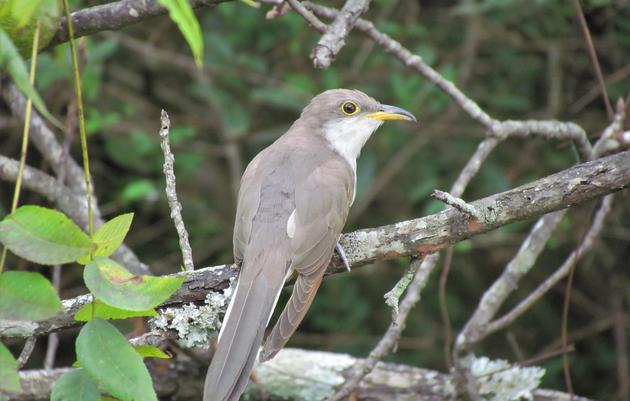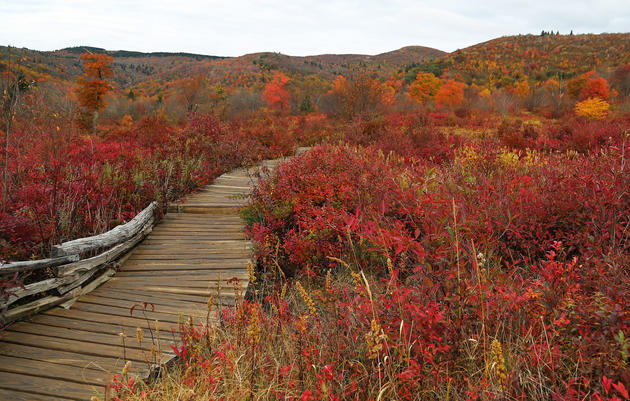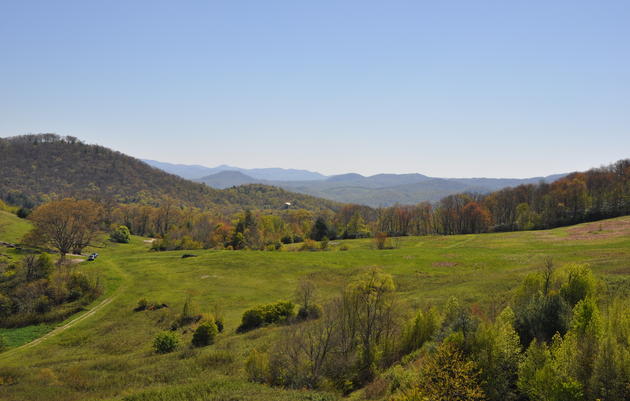From the mountains to the coast, North Carolina offers food and sanctuary to hundreds of bird species across the state.
North Carolina birds support over $1 billion in spending each year through state birding festivals, ecotourism at North Birding Trail sites, and seed and binocular sales.
For over 100 years, Audubon and our partners have worked to protect the most important places that these birds depend upon including pristine mountain forests, extensive marsh and maritime forest on Currituck Sound, bird islands on the Lower Cape Fear River, and Warwick Mill Bay. Despite these efforts, new development pressures, changing land uses, and shifting seasons are affecting where our birds can survive and thrive in the future.
Conservation trust funds like the federal Land and Water Conservation Fund and the North Carolina Clean Water Management Trust Fund provide critical resources to ensure protection of mountain forests, natural coastal inlets and other Important Bird Areas in the state. Audubon also advises private landowners, land trusts and agency partners on opportunities to make habitat on their land more beneficial to birds.
Growing Conservation Funding
To date, 96 Important Bird Areas (IBAs) have been designated in North Carolina encompassing 4.9 million acres. Protection of land and habitat in these areas is critical to the long-term survival of North Carolina’s bird species.
Audubon’s 30,000+ members and 10 Chapters represent a powerful voice in North Carolina for land and habitat protection. In 2016, Audubon helped secure passage of the Connect NC Bond, which allocated $75 million to 45 state parks and furthered land acquisition in Important Bird Areas. In the 2018 legislative session, Audubon is working together with the Land for Tomorrow and NC Forever coalitions to secure increased and predictable funding for the Clean Water Management Trust Fund, Parks and Recreation Trust Fund, Agricultural Development and Farmland Preservation Trust Fund, and the Conservation Reserve Enhancement Program.
Managing Land for Birds
Audubon advises private landowners, Boy Scout camps, land trusts and state and federal agencies on opportunities to make their land and forests more friendly for birds. For example, to boost populations of imperiled Golden-winged Warblers in Western North Carolina, Audubon works with landowners to restore shrubland on their properties using selective thinning of vegetation. On Ferry Slip and South Pelican dredge islands on the Lower Cape Fear River, Audubon partnered with the Wildlife Resources Commission to remove Bermuda grass that threatens the open sandy conditions preferred by nesting American Oystercatchers and other coastal birds.
Audubon also plays a lead role in advising the National Forest Service and working with partners on a revision of the Nantahala and Pisgah Forest Plan that will affect habitat management and recreational uses on over 1.1 million acres of forestland in Western North Carolina.
Fired up on this issue? To stay up to date on policy issues where your voice can make a difference for NC birds, sign up for Audubon’s Action Alert Network.







